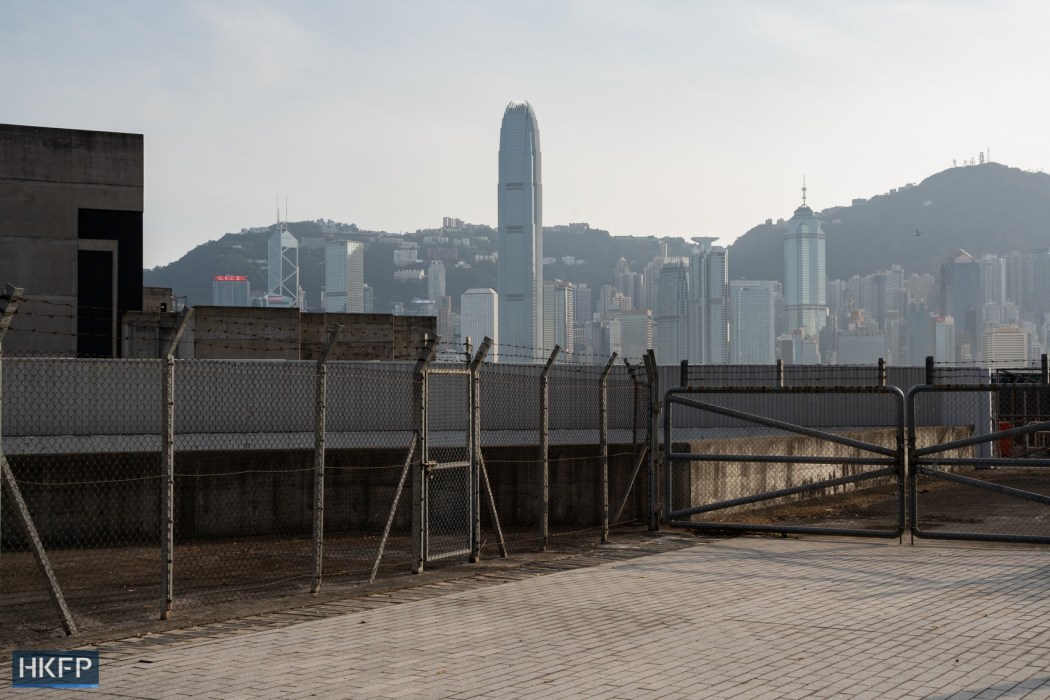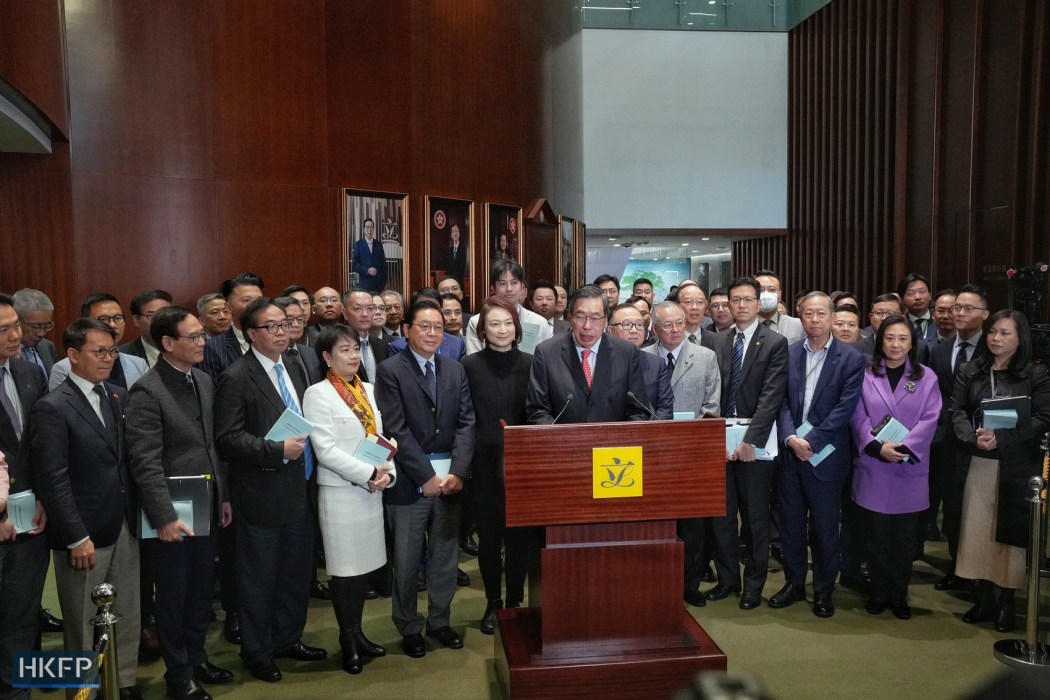Those found guilty of certain offences under Hong Kong’s proposed new security legislation, including treason and sabotage, may face life in prison, a draft bill unveiled on Friday has revealed.

The government on Friday introduced the Safeguarding National Security Bill – known locally as Article 23 – to the city’s legislature, which convened a rare, off-schedule meeting to begin its legislative process. Andrew Leung, president of the Legislative Council (LegCo) said the government and the LegCo must join hands in passing the bill as soon as possible, describing it as a “historical mission.”
See also: New powers proposed for police, courts to limit national security detainees’ access to lawyers
Authorities for the first time set out the proposed penalties for each of the offences included under Article 23 legislation, which covers five areas of national security crimes: treason, insurrection and incitement to mutiny, theft of state secret and espionage, sabotage, and external interference.
Among the offences that could be punished by life in prison were: treason, insurrection and sabotage, targeting acts that endanger the sovereignty of China and collusion with foreign forces in damaging public infrastructure.
Among the raft of offences included in the draft bill, most carry a maximum penalty of more than five years in jail, with some seeing higher sentences still if the offences were committed in collusion with a foreign force.
That includes sabotage by damaging or weakening public infrastructure, punishable by up to 20 years in prison. But if the offender is found to have colluded with “an external force,” they could face life behind bars.
External forces include foreign governments, political parties, international organisations as well as the personnel affiliated with them, according to the bill.
A consultation paper for Article 23 said offences relating to sabotage were directed against vandalism of transport and telecommunications facilities, citing the pro-democracy protests and unrest in 2019.
Protests erupted in June 2019 over a since-axed extradition bill. They escalated into sometimes violent displays of dissent against police behaviour, amid calls for democracy and anger over Beijing’s encroachment. Demonstrators demanded an independent probe into police conduct, amnesty for those arrested and a halt to the characterisation of protests as “riots.”
Similarly, the new insurrection offence covers violent acts with an intention to “endanger the sovereignty, unity or territorial integrity of [China] or the public safety of [Hong Kong],” with authorities saying it could “adequately reflect… the nature of such violence [in 2019] in endangering national security.”

New offences are introduced in the draft bill that fall outside of the five areas of crime, including “Unlawful harassment of persons handling cases or work concerning national security,” punishable by up to 10 years in jail.
“Prejudicing investigation of offences endangering national security” and “making available or dealing with funds to absconder” are proposed with up to seven years in prison.
Lawmakers are set to convene over the weekend for extra meetings to push forward the legislative process, according to local media reports.
Article 23 of the Basic Law stipulates that the government shall enact laws on its own to prohibit acts of treason, secession, sedition and subversion against Beijing. Its legislation failed in 2003 following mass protests and it remained taboo until after the onset of the separate, Beijing-imposed security law in 2020. Pro-democracy advocates fear it could have a negative effect on civil liberties but the authorities say there is a constitutional duty to ratify it.
Article 23 security law bill in full:
- Hong Kong proposes dissolving organisations accused of ‘external interference’
- Threshold for early release may be raised for national security prisoners, draft bill says
- Hong Kong proposes life sentences for treason, insurrection, sabotage
- New powers mulled for police, courts to limit nat. security detainees’ access to lawyers
- Hong Kong proposes cancelling ‘absconders’ passports under new security law
- Public interest defence proposed for some ‘state secrets’ offences in draft security law
- Hong Kong proposes raising max. penalty for sedition to 10 years under new sec. law
- Courts could extend detention without charge for 2 weeks, draft nat. sec. bill suggests
- Hongkongers may face 7 years jail for ‘inciting disaffection’ of public officers
- Hong Kong’s business community expresses concern over proposed new security law
Support HKFP | Policies & Ethics | Error/typo? | Contact Us | Newsletter | Transparency & Annual Report | Apps
Help safeguard press freedom & keep HKFP free for all readers by supporting our team
























